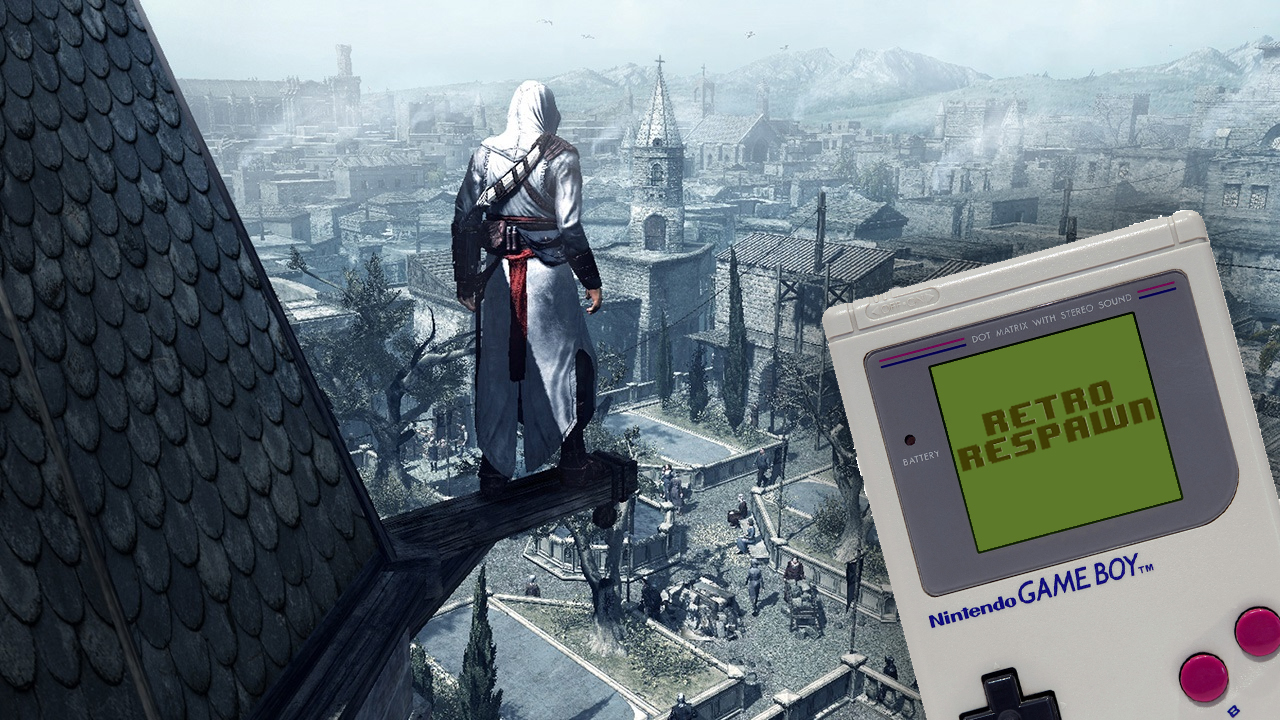Assassin's Creed: appreciating its origins
Step into the Animus

Sign up for breaking news, reviews, opinion, top tech deals, and more.
You are now subscribed
Your newsletter sign-up was successful
November is a big month for the Assassin’s Creed franchise – it’s the first full month since the launch of the latest title, Origins, and it also marks 10 years since the release of the first game.
That’s right, the Assassin's Creed series is 10 years old. No, I can’t believe it either. It makes me feel old enough to be an Animus ancestor rather than an Animus user.
Having played every mainline Assassin’s Creed game, including the latest title, I’m always impressed by how far this series has come. The jump between the first and second titles in particular was big, bringing huge improvements to visuals and story while reducing that feeling of grinding repetition.
Making history
The improvements haven’t exactly been consistent (you only have to look at how much better Black Flag is compared to its follow-up game, Unity) and as a result the series was growing stale.
However, Ubisoft has used Origins as an opportunity to reinvigorate the series. It’s a significant departure from the usual Assassin’s Creed fare – the world is more open and sprawling than ever before, and new RPG mechanics have created a sense of control over character progression. The changes have been well-received, and I love them myself and my interest in the franchise has been restored as a result.
So, to mark this momentous anniversary for the series, I decided to briefly dip back into the original game after completing Origins to get a sense of how different it feels.

And... it seems pretty damn different. Though both games are quite clearly Assassin’s Creed titles, Origins’ world is more colorful, the AI has more life, the protagonist is more interesting, the combat is significantly better and the missions are nowhere near as repetitive.
Sign up for breaking news, reviews, opinion, top tech deals, and more.
Despite that, I still have a fondness for the original Assassin’s Creed because although it has its problems, it’s a true achievement.
When it was first announced, I was convinced Assassin’s Creed had been made just for me. I was a teenager obsessed with history and I’d been somewhat embarrassingly fascinated by Templar lore since playing the first Broken Sword game.
Animus accuracy
It was an ambitious title and I was hugely impressed by it. However, it wore on my patience and took me a long time to get through because I had to take extensive breaks from it to keep a sense of freshness. It was an open world game that didn’t make adequate use of its openness.
Looking back at it now, though, I appreciate that more than any other game in the series, it’s the original Assassin’s Creed that probably most accurately captures the experience of using the Animus and the concept of reliving memories.
Memories that, by and large, aren’t particularly fun. There’s a reason the Assassin’s Creed tagline is “history is our playground” and not “memories are our playground.” Time travelling makes for a great game but doing so through the mind of another has limitations which detract from that.
It might not make it a great game to play, but the original Assassin’s Creed showcases its concept (despite its limitations) so well that I can’t help but appreciate it.

When entering the Animus you’re not really going back in time, you’re re-living another person’s memories. Memories are rarely completely accurate – when we reminisce we remember flashes, we fill in blanks, we disregard the things we weren’t paying attention to, sometimes we even lie to ourselves.
Admittedly, the Animus genetically accesses memories which would probably result in something a little more accurate that simply remembering (we won't probe too far into the science) but I can’t help but feel using the Animus shouldn’t result in a sprawling open adventure that feels highly realistic with endless side quests. Instead, I’d expect something far more closed in that keeps me moving at a steady chronological pace.
My surroundings wouldn’t be alive and in-the-moment, they’d be somewhat foggy and empty. People around me wouldn’t feel like real living beings, either – they’d likely be robotic and slightly unnatural in their actions because at the time I wouldn't have been paying attention to their every move or listening to their every word.
It doesn't do to dwell
With its repetition, glitching, less accomplished AI, memory blocks and even its muted, somewhat drained color palette it’s the original Assassin’s Creed that reflects this best.
It doesn’t allow you to go to places you wouldn’t remember being, civilians have as much life as you would have noticed, and despite being beautiful, the world has a somewhat foggy quality that makes it feel, funnily enough, like a place remembered.
It’s unfortunate that this simplicity makes for a rather dull open-world game. Perhaps if the original Assassin’s Creed hadn’t fallen into the open world trap and Ubisoft hadn’t responded to criticism by adding side quests and collectibles, the series would have gone in a very different direction.
That said, after 10 years it seems that the series has achieved its open world goals and, well, there’s no point in dwelling on the past is there? Onward we go.
- Emma Boyle is taking a look back at games gone by (some of them older than she is.) Follow her time traveling adventures in her bi-weekly Retro Respawn column. Got any games you'd especially like to see her revisit? Let her know on Twitter @emmbo_

Emma Boyle is TechRadar’s ex-Gaming Editor, and is now a content developer and freelance journalist. She has written for magazines and websites including T3, Stuff and The Independent. Emma currently works as a Content Developer in Edinburgh.